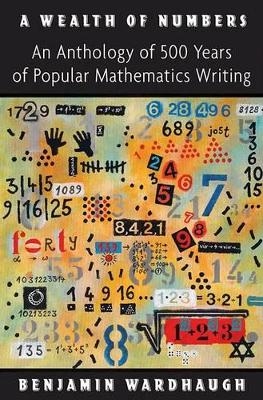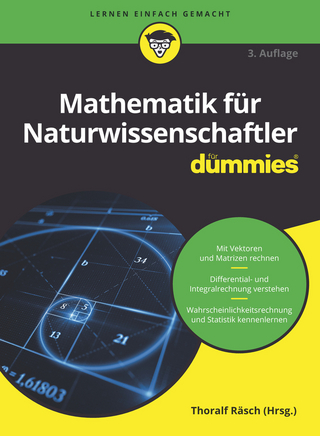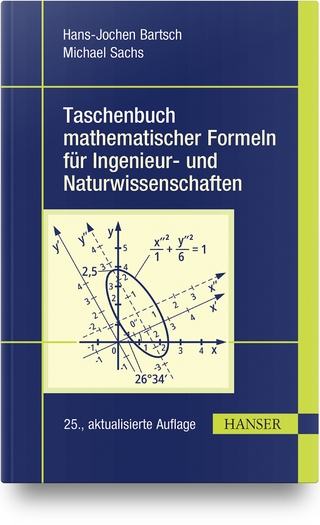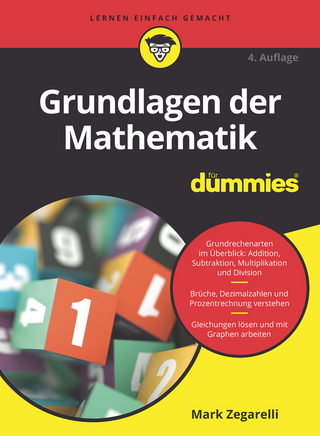
A Wealth of Numbers
Princeton University Press (Verlag)
978-0-691-14775-8 (ISBN)
Despite what we may sometimes imagine, popular mathematics writing didn't begin with Martin Gardner. In fact, it has a rich tradition stretching back hundreds of years. This entertaining and enlightening anthology--the first of its kind--gathers nearly one hundred fascinating selections from the past 500 years of popular math writing, bringing to life a little-known side of math history. Ranging from the late fifteenth to the late twentieth century, and drawing from books, newspapers, magazines, and websites, A Wealth of Numbers includes recreational, classroom, and work mathematics; mathematical histories and biographies; accounts of higher mathematics; explanations of mathematical instruments; discussions of how math should be taught and learned; reflections on the place of math in the world; and math in fiction and humor.
Featuring many tricks, games, problems, and puzzles, as well as much history and trivia, the selections include a sixteenth-century guide to making a horizontal sundial; "Newton for the Ladies" (1739); Leonhard Euler on the idea of velocity (1760); "Mathematical Toys" (1785); a poetic version of the rule of three (1792); "Lotteries and Mountebanks" (1801); Lewis Carroll on the game of logic (1887); "Maps and Mazes" (1892); "Einstein's Real Achievement" (1921); "Riddles in Mathematics" (1945); "New Math for Parents" (1966); and "PC Astronomy" (1997). Organized by thematic chapters, each selection is placed in context by a brief introduction. A unique window into the hidden history of popular mathematics, A Wealth of Numbers will provide many hours of fun and learning to anyone who loves popular mathematics and science.
Benjamin Wardhaugh is a postdoctoral research fellow at All Souls College, University of Oxford, where he studies and teaches the history of mathematics. He is the author of How to Read Historical Mathematics (Princeton).
*FrontMatter, pg. i*Contents, pg. v*Preface, pg. xiii*1. "Sports and Pastimes, Done by Number": Mathematical Tricks, Mathematical Games, pg. 1*2. "Much Necessary for All States of Men": From Arithmetic to Algebra, pg. 32*3. "A Goodly Struggle": Problems, Puzzles, and Challenges, pg. 62*4. "Drawyng, Measuring and Proporcion": Geometry and Trigonometry, pg. 84*5. Maps, Monsters, and Riddles: The Worlds of Mathematical Popularization, pg. 108*6. "To Ease and Expedite the Work": Mathematical Instruments and How to Use Them, pg. 152*7. "How Fine a Mind": Mathematicians Past, pg. 176*8. "By Plain and Practical Rules": Mathematics at Work, pg. 216*9. "The Speedier Expedition of Their Learning": Thoughts on Teaching and Learning Mathematics, pg. 245*10. "So Fundamentally Useful a Science": Reflections on Mathematics and Its Place in the World, pg. 290*11. The Mathematicians Who Never Were: Fiction and Humor, pg. 326*Index, pg. 367
| Erscheint lt. Verlag | 29.4.2012 |
|---|---|
| Zusatzinfo | 39 halftones. 19 line illus. |
| Verlagsort | New Jersey |
| Sprache | englisch |
| Maße | 152 x 235 mm |
| Gewicht | 680 g |
| Themenwelt | Sachbuch/Ratgeber ► Natur / Technik |
| Mathematik / Informatik ► Mathematik ► Allgemeines / Lexika | |
| Mathematik / Informatik ► Mathematik ► Geschichte der Mathematik | |
| Mathematik / Informatik ► Mathematik ► Mathematische Spiele und Unterhaltung | |
| ISBN-10 | 0-691-14775-2 / 0691147752 |
| ISBN-13 | 978-0-691-14775-8 / 9780691147758 |
| Zustand | Neuware |
| Haben Sie eine Frage zum Produkt? |
aus dem Bereich


